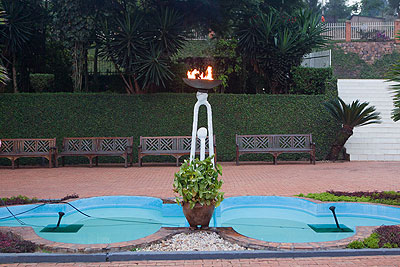Editor,Reference is made to the article, “UN marks 65th anniversary of treaty on preventing genocide” (The New Times, December 11).


Editor,Reference is made to the article, "UN marks 65th anniversary of treaty on preventing genocide” (The New Times, December 11).As commonly echoed "prevention is better than cure”. There is need to forecasting mass violence by developing an early public warning system or a group of experts to explore key aspects in designing and operating such a system.Early public warning is a very critical component in prevention of genocide and mass atrocities and raising awareness of the dynamics of genocide through advocating and mobilising the public for appropriate action. Each individual state has got the responsibility to protect its populations from genocide, war crimes, ethnic cleansing and crimes against humanity."Rwanda witnessed the most horrible and systematic human massacre we have had occasion to witness since the extermination of the Jews by the Nazis,” Bertrand Russel, a British philosopher said.Rwandans were traumatised by the killings beyond comprehension as genocide was planned; they were left without protection as the extermination went on leaving a million of innocent people to die at the hands of marauding interahamwe militia."Nobody helped, no one came – Tutsis cried for help,” Senator Romeo Dallaire recounts in his book, Shaking Hands with the Devil. Well, as we celebrate the 65th anniversary of the Treaty, Rwandans ought to sound an alarm and demand action calling for a collective and individual responsibility because each and everyone has a role to play – be it the government, civil society, or religious groups.We must learn that power comes from within, and that we only get weakened when we continue to depend on the outside world. It’s high time we threw ourselves into our own thoughts and take charge of our future.We should not shy away from history; 19 years is too soon to forget. It’s high time we stand at the right cross of history and choose hope of no blind optimism but of imagination, working towards self-actualisation and dignity for all Rwandans."Never Again” is a challenge to societies but we must change our mindsets and turn memories into action. There is nothing in the universe that is impossible; it’s all about the mindset. Unless we are free in our minds, we shall never be flexible in life and this also calls for critical thinking.We must take history in our hands and reach for what is possible, for peace comes to those who make right choices. It’s time for concrete action. Let’s negate those who fan the flame of hate and divisionism and move this country forward as we work towards a world where we are strengthened by our differences but not defined by them.David Nkusi, Rwanda


